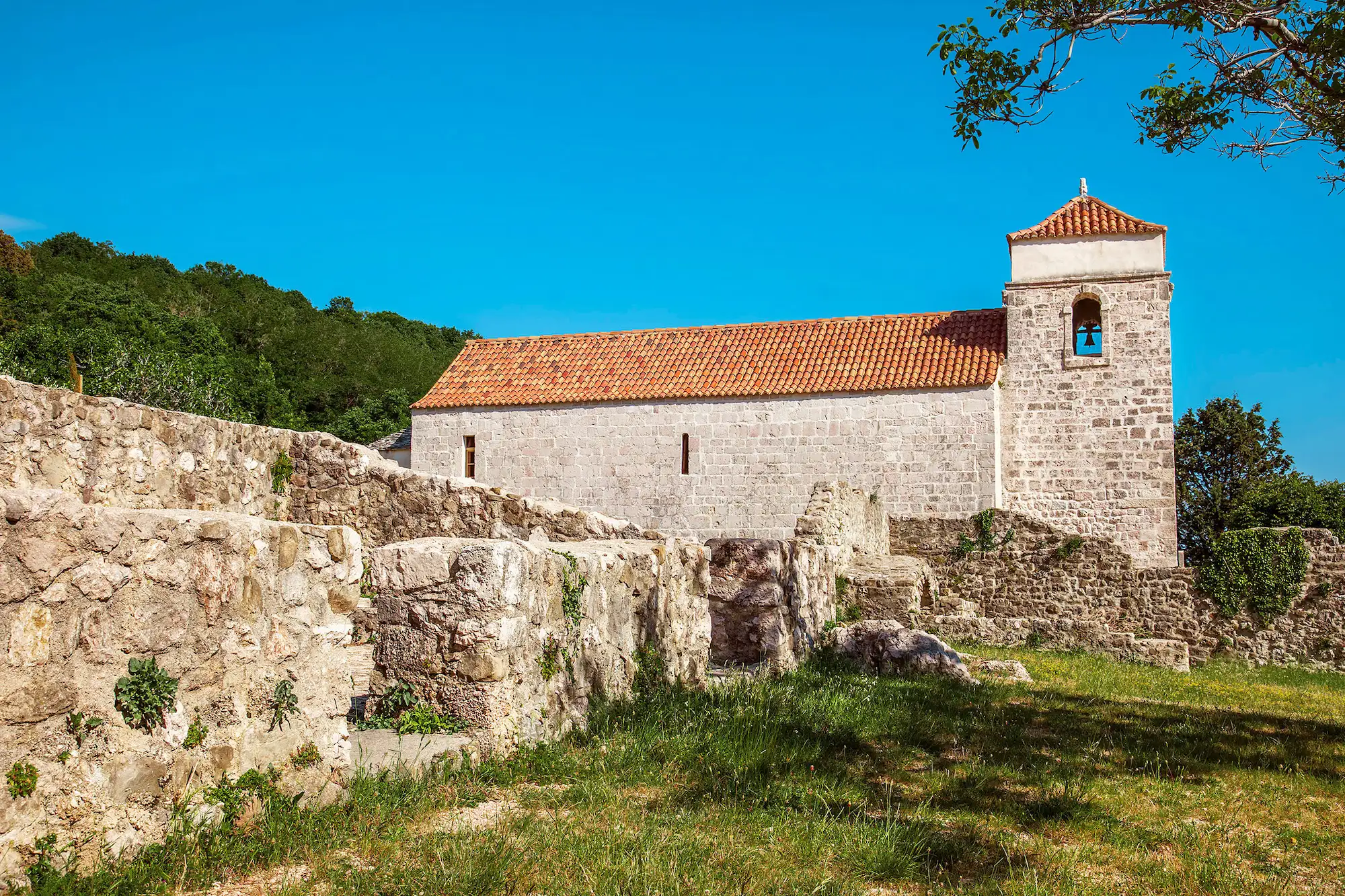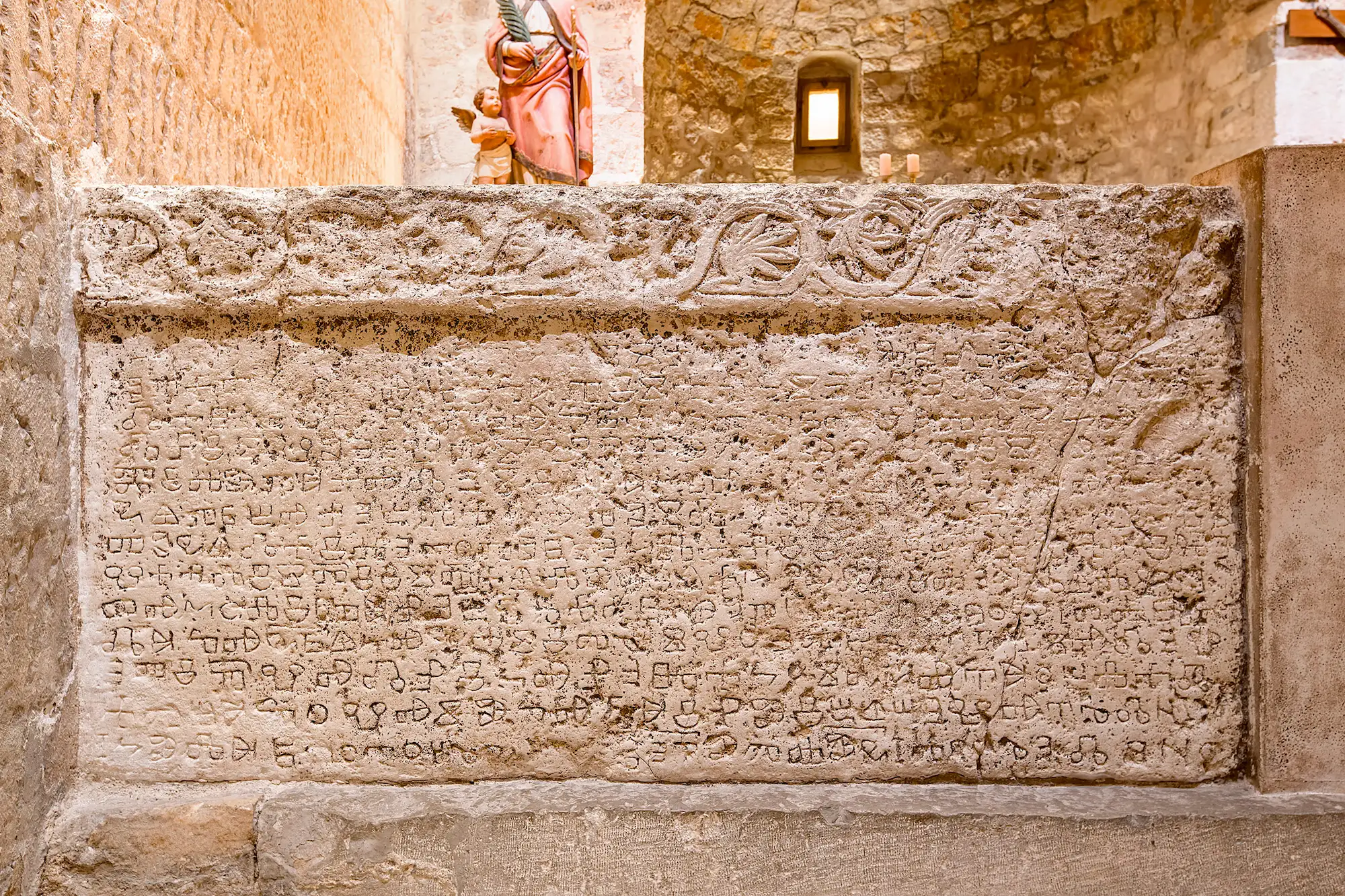

The word "dobro" in the Croatian language is universally understood, carrying meaning in every context—philosophical, theological, and everyday life.

While we appreciate this connection, it was not our original intention.
The truth is, we wanted the hotel's name to reflect something deeper: the heritage and history of Baška. A history that, although at times turbulent, remains vitally important to the Republic of Croatia.
In fact, we might even argue, which could seem paradoxical, that Baška’s past holds greater significance for Croatia as a whole than it does for Baška itself.

Beyond connecting the hotel's name to Baška’s heritage and legacy, we sought to honour the memory of those who lived, walked, prayed, and worked here long before us. One of these people, to whom we owe our gratitude for the good life we enjoy in Baška today, was named Dobrovit.
Dobrovit was the abbot of the Benedictine monastery of St. Lucy, located in the part of Baška known as Jurandvor. His name is immortalized on the Baška Tablet, which was carved around the year 1100 (History of the Baška Tablet).
The inscription, written in Glagolitic script, reveals that Dobrovit, together with nine of his Benedictine brothers, built both the monastery and the Church of St. Lucy on land granted to them by Croatian King Zvonimir, who had previously given it to Dobrovit's predecessor, Abbot Držiha.
In 1851, it was within the very Church of St. Lucy, still standing on the same site, that the theologian and future priest Petar Dorčić uncovered the Baška Tablet.

The significance of the Baška Tablet for Croatian history, culture, and language cannot be overstated. It stands as the oldest known document—an enduring monument—bearing the Croatian national name inscribed in the Croatian language.
It comes as no surprise, then, that Croatia’s foremost cultural and scientific institutions regard the Baška Tablet as one of the nation's most priceless treasures. Renowned scholars have hailed it as the "gem" of the Croatian language, the birth certificate, and the rightful homeland certificate for all Croats.
Thanks to the digital world we live in today, our guests can easily find a wealth of information about Baška.
They’ve likely already learned that Baška is one of Croatia’s most stunning small tourist destinations, and that its beach is one of the largest and most beautiful along the Adriatic coast. However, few are aware of the significance of the Baška Tablet.
That’s why we chose to name our hotel Dobrovit—to introduce both our "old" and new guests to the immense historical, cultural, and linguistic importance of Baška, not only for Croatia but also for the European Union, of which Croatia is a full member.
We believe it’s essential for our valued guests to know that the Baška Tablet, one of the most treasured Croatian and European monuments, was created and discovered just 1,850 meters from our hotel and this breath-taking beach. It’s also worth noting—and truly fascinating—that, according to experts, this extraordinary monument was carved around the year 1100—340 years before Gutenberg invented the printing press in 1440, and nearly four centuries before Columbus discovered America in 1492.
This distant yet significant history, which unfolded right here, has been preserved through the carving of a stone tablet.
The credit for this preservation goes to abbots Držiha and Dobrovit, who, alongside their Benedictine brothers, lived by the motto "Ora et Labora." Not only did they carve the text onto the Baška Tablet, but they also worked tirelessly, building the monastery that stood beside what would later become the present-day Church of St. Lucy. They cared deeply for the people of Baška, gathered them, supported them at every turn, and provided education.
For this reason, we felt it was important to honour these noble Benedictines by reminding each of our guests of their legacy, which we have done by naming our hotel Dobrovit.
However, the name Dobrovit connects us not only to our heritage and legacy but also to the countless generations of people from Baška who lived, walked, prayed, and worked here after abbots Držiha and Dobrovit.
This is precisely what we set out to accomplish! To remind our guests and everyone else of the fishermen, farmers, shepherds, and sailors who, under incredibly harsh conditions, fought for the survival of their families and defended Baška, their Croatian national identity, language, and culture from the many forces that sought to harm them.
We owe them our gratitude for the fact that we are here today and that Baška is one of the most promising municipalities and one of the most charming small tourist destinations in our beautiful Croatia, a member of the European Union.
For this reason, we warmly invite our guests to not only visit the Baška Tablet but also discover other exhibitions, landmarks, and toponyms around Baška (visitbaska.hr). Our dedicated staff is here to assist you and share more about Baška’s rich history and the lives of those to whom we owe our thanks for making our lives—and the lives of our dear guests—"good" (DOBRO).